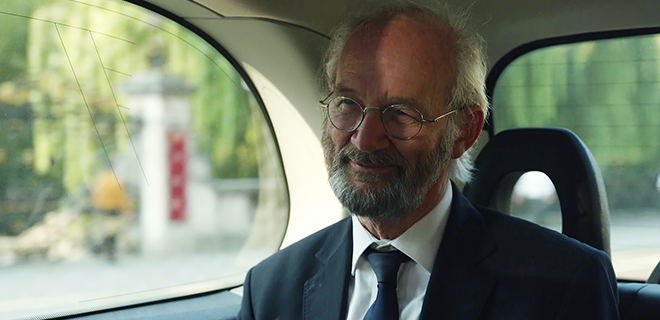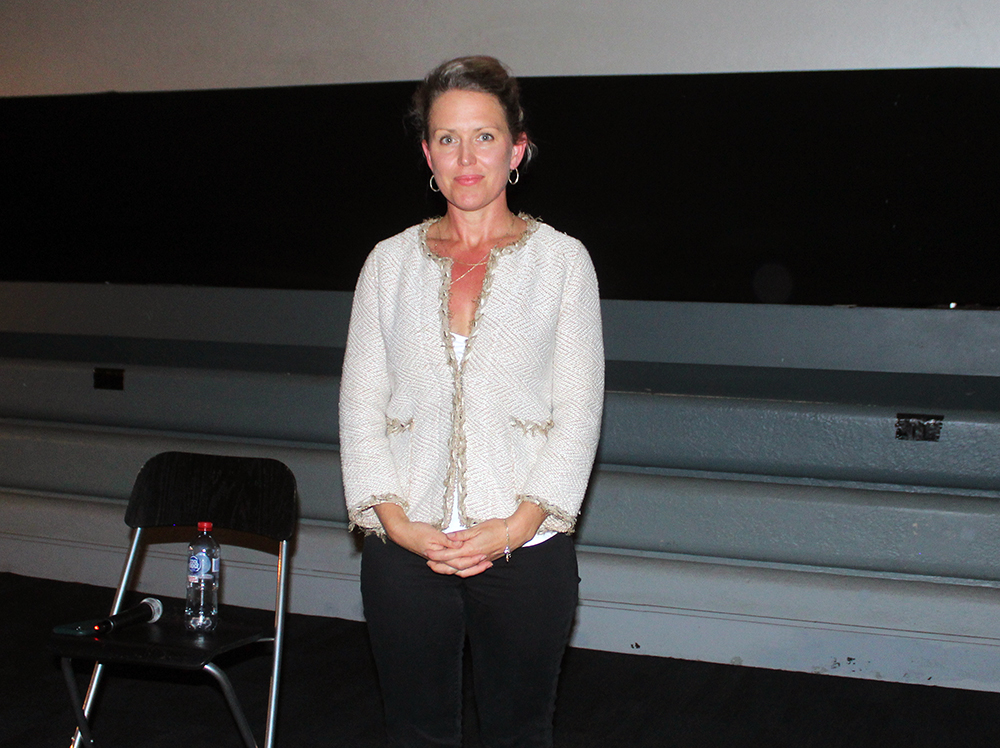
Australian Julian Assange is arguably the most famous political prisoner in the world.
He is currently locked up at the UK’s maximum-security Belmarsh Prison where he has been fighting extradition to the US on espionage charges.
If his extradition goes ahead, the Wikileaks founder could face 175 years in prison for his role in the release of classified US diplomatic files.
The case took an ominous turn last week when a British court formally approved the extradition. Assange’s fate will now be decided by UK home secretary, Priti Patel.
However, the home secretary’s decision is also subject to appeal, so the grim David-and-Goliath struggle goes on.

Hence it was timely for the Starfish to attend a screening of Ben Lawrence documentary Ithaka at Luna Leederville recently.
Assange’s high profile Australian lawyer Jennifer Robinson was a special guest at the event, hosted by film critic and journalist Mark Naglazas. Jennifer has been quietly based in Perth for months, and is about to return to the UK to continue the fight.
Incidentally she is also Amber Heard’s lawyer in the on-going Johnny Depp defamation case, so the dynamic lawyer is busy on several fronts.
Mark and Jennifer were joined by journalist Victoria Laurie for the post- film chat.

Ithaka follows the tireless efforts by Julian’s father, John Shipton, and Julian’s wife Stella Moris (mother of his two children), to free him and from the notorious British jail where his health and mental state have deteriorated significantly.
We watch John travelling from Australia to London for long spells, visiting Julian in prison, holding vigils and press conferences outside the courts and jail, and helping look after his young grandchildren.
He also visits Washington to try to put his son’s case to the new Biden government, but the US Department of Justice refuses to budge on the extradition order.
Meanwhile Stella arranges media gatherings, helps manage the court case, generates support for the cause and tries to raise her husband’s spirits through phone calls.

The doco is well constructed and personalises what is actually a Titanic struggle between the darker forces of government and the public’s right to know about egregious wrongdoing. Yet a little more history about Julian’s long ordeal may have made the story a little stronger.
At times moving and intimate, the documentary exposes the brutal realities of Julian’s situation and the relentless manoeuvrings of the apparatus of state to see him brought to “justice”.
Throughout, we are left in little doubt that the once iron-clad principles of freedom of speech and media protection are under serious threat, and therefore so is democracy itself.

Since April 2019, Assange has been held in near total isolation at Belmarsh. He has been in various forms of lock-up for 11 years, including detention at Wandsworth Prison, house detention, and almost seven years holed-up at the Ecuadorian Embassy, before being physically removed and tossed into Belmarsh.
Sitting Australian governments have done remarkably little to assist Assange, an Australian citizen, claiming the case is out of their hands. Many see this as an easy cop-out.
Numerous prominent individuals and international organisations believe Assange is not just a prisoner, but a victim of state sanctioned torture.
Nils Melzer, UN Special Rapporteur on Torture, is one of these. He says in Ithaka that Assange is being detained in terrible conditions primarily to discourage others from following his lead of exposing crimes and corruption by governments, corporations and powerful individuals.

Assange and his brainchild Wikileaks have been in the news for 12 years. Wikileaks was created for whistleblowers to safely leak information of wrongdoing.
The most famous leak, and the one that first sparked US government rage, was in 2010 and labelled Collateral Murder. It showed shocking footage of a US helicopter gunship in Iraq shooting and murdering Iraqi civilians – including journalists and children.
Since that time there has been a sustained and concerted effort by several states to extradite Assange to the US for prosecution – to silence him, stop Wikileaks, and discourage more leaks from concerned citizens.

He has become a symbol of an international arm wrestle over freedom of journalism, government corruption and unpunished war crimes.
Jennifer Robinson told the Ithaka audience the draconian government approach to the case is already having an impact on global freedom of information and the public’s right to know the truth.
“This case is a precedent in law and is already changing things,” she said. “Back in 2011, I was in the US working on the Chelsea Manning proceedings and I spoke to a group of journalists covering the case.

“They said they were terrified and didn’t think this kind of thing would ever happen. They knew the espionage act was in place by never thought it could, or would, be wielded in this way.”
“We don’t know how many more Chelsea Mannings or Edward Snowdens would have come forward, if Julian had not been pilloried in this way.
“And we don’t know how many journalists have shied away from receiving classified information that is offered to them because of Julian’s prosecution.”

She said the situation was no better in Australia.
“In Australia we have raids on the ABC offices, David McBride has been prosecuted, lawyer Bernard Collaery has been prosecuted.
“Lawyers, too, are targeted. This is terrifying for me. Bernard Collaery has been prosecuted for defending his client, “Witness K” who released information that was absolutely in the interest of the Australian public.
“So, is it making a difference? It is. What happens to Julian in this case really matters, and that’s why we have to win.”
Want to know more? For more info on Julian Assange’s case, and the movie visit https://ithaka.movie

ANZAC Day has just passed and one of the slogans in the military is ‘leave nobody behind’.
In the battleground of truth and public interest, there is no doubt Aussie journalist extraordinaire Julian Assange has well and truly been left behind.
Predictably, no candidate in these elections has even mentioned his name.
Yes, the case says a lot about the rather abysmal state of free speech and freedom of the press in today’s world. The truth won’t save you; it’ll get you flung into a prison hell-hole. Things have deteriorated dramatically, and governments (including our own) continue to ram through draconian ‘national security’ laws which would never have made the light of day even a few years ago. It’s also incredibly disappointing that the Australian government has washed its hands of Julian and he hasn’t come up at all during the election. Frankly, a shameful state of affairs for democracy itself.